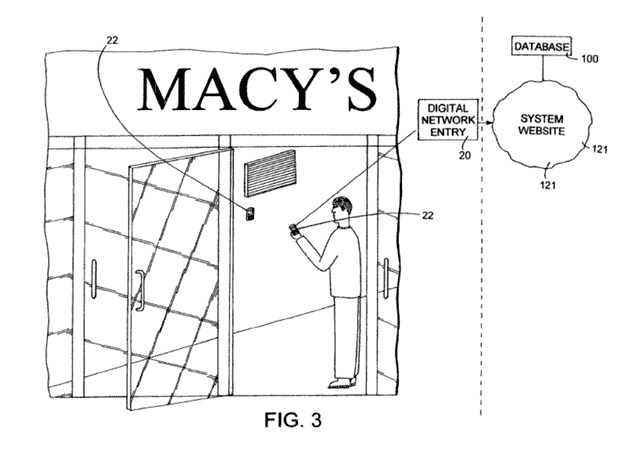The Federal Circuit has reversed a New York court’s grant of a motion by Google to dismiss a patent infringement case against the company. The court found that the plaintiff had plausibly alleged an inventive concept in its patent claims for methods to record a person’s physical activity.
In Weisner v. Google LLC, Sholem Weisner sued Google for the alleged infringement of several of his patents.
As the court described,
The four asserted patents are related and share a common specification. The shared specification generally describes ways to “digitally record a person’s physical activities” and ways to use this digital record….. Specifically, it describes a way in which individuals and businesses can sign up for a system so that they can exchange information, for instance, “a URL or an electronic business card.” …Then, as individuals go about their day, they may encounter people or businesses that they want to be recorded in their “leg history,” which records the URLs or business cards along with the time and place of the encounters.
The “leg history” is “the accumulation of a digital record of a person’s physical presence across time.”
People can record entries in their travel history either by accepting a proposal from another person/business or by making an entry (e.g., by “tak[ing] a snapshot with a digital camera . . . and upload[ing] it to [their] databank”).
The patent specification also describes using this collected travel history data to “enhance web searching results” by using a “useful person”—someone that has visited a location in common with the searching person.
Weisner filed suit against Google for alleged patent infringement and Google moved to dismiss. Google argued that the asserted patent claims are ineligible under 35 U.S.C. § 101 and that Weisner had failed to meet the minimum threshold for plausibly pleading his claim of patent infringement.
The district court granted dismissal based on §101 and Weisner appealed.
As the circuit court noted,
Section 101 defines patent-eligible subject matter as “any new and useful process, machine, manufacture, or composition of matter, or any new and useful improvement thereof.” 35 U.S.C. § 101. The Supreme Court established a two-step test for examining patent eligibility under § 101 in Alice Corp. v. CLS Bank International, 573 U.S. 208 (2014). Under step one, we “determine whether the claims at issue are directed to . . . [a] patent-ineligible concept[,]” such as an abstract idea. … Under step two, we “consider the elements of each claim both individually and ‘as an ordered combination’ to determine whether the additional elements ‘transform the nature of the claim’ into a patent-eligible application.” Id. Step two is “a search for an ‘inventive concept’—i.e., an element or combination of elements that is ‘sufficient to ensure that the patent in practice amounts to significantly more than a patent upon the [ineligible concept] itself.’”.
The federal circuit agreed with the lower court that the representative claims of these patents are directed to an abstract idea, i.e., “collect[ing] information on a user’s movements and location history [and] electronically record[ing] that data.”
However, the court concluded that with respect to two of the patents the claims “recite a specific implementation of the abstract idea that purports to solve a problem unique to the Internet and that, accordingly, these claims should not have been held ineligible under step two at this stage.”
Thus, the circuit court reversed the dismissal with respect to these two patents, holding that they:
plausibly include more than merely the concept of improving computerized search results using travel histories. Instead, those claims add significantly more to that abstract idea by implementing a specific solution to a problem rooted in computer technology.
Just like the haiku above, we like to keep our posts short and sweet. Hopefully, you found this bite-sized information helpful. If you would like more information, please do not hesitate to contact us here.


